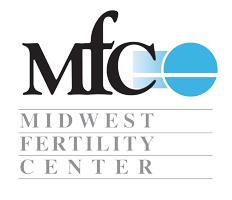The holiday season is a time for joy, celebrations, and delicious food. However, if you’re pregnant, you may need to be extra cautious about what’s on your plate. Certain holiday favorites can pose risks to your health and the health of your baby due to the presence of harmful bacteria, high levels of certain nutrients, or alcohol. Here’s a guide to navigating holiday meals safely during pregnancy.
1. Soft Cheeses and Unpasteurized Dairy Products
Cheeses like Brie, Camembert, blue cheese, and feta are holiday staples, often featured on cheese platters or in recipes. However, if these cheeses are made from unpasteurized milk, they may harbor Listeria, a bacterium that can cause severe foodborne illness in pregnant women.
Tip: Opt for cheeses labeled “made with pasteurized milk” or choose hard cheeses like cheddar or gouda.
2. Undercooked or Raw Meat and Poultry
Roast turkey, beef tenderloin, or ham are common on holiday menus. Undercooked or raw versions of these meats can contain Toxoplasma or Salmonella, both of which are dangerous during pregnancy.
Tip: Ensure all meat is cooked to safe internal temperatures: 165°F (74°C) for poultry, 145°F (63°C) for beef, and allow adequate resting time.
3. Pâté and Meat Spreads
These rich and savory spreads are a favorite on holiday appetizer boards, but they can also contain Listeria.
Tip: Skip the pâté unless it’s shelf-stable and canned, and always check labels for safety.
4. Smoked Seafood
While smoked salmon or trout can be a tasty addition to a holiday feast, it can also carry Listeria if not fully cooked. This risk is particularly high for refrigerated varieties.
Tip: Opt for fully cooked seafood or canned options to avoid contamination.
5. Stuffing Cooked Inside Poultry
Stuffing absorbs juices from the bird, which may contain bacteria like Salmonella. If the stuffing doesn’t reach 165°F (74°C) during cooking, it can be unsafe.
Tip: Cook stuffing in a separate dish to ensure it reaches the correct temperature.
6. Raw Eggs in Desserts and Drinks
Eggnog, mousse, and homemade custards are holiday dessert staples. If these contain raw or undercooked eggs, they may pose a risk of Salmonella.
Tip: Use pasteurized eggs or store-bought eggnog made with pasteurized ingredients.
7. Alcoholic Drinks
Whether it’s mulled wine, champagne, or spiked eggnog, alcohol is a significant part of many holiday celebrations. However, no amount of alcohol has been proven safe during pregnancy.
Tip: Opt for non-alcoholic mocktails or sparkling water with festive garnishes.
8. High-Mercury Fish
Some festive dishes might feature fish like swordfish, king mackerel, or tilefish, which are high in mercury. High mercury levels can harm your baby’s developing nervous system.
Tip: Stick to low-mercury options like salmon, cod, or shrimp, and limit seafood intake to 2-3 servings per week.
9. Unwashed Fruits and Vegetables
Holiday dishes like salads, crudités, or garnishes may use fresh produce, which can carry bacteria or parasites like Toxoplasma if not washed thoroughly.
Tip: Rinse all fruits and vegetables under running water, even if they will be peeled.
10. Cured Meats and Deli Platters
Cold cuts, salami, and other cured meats are popular at holiday gatherings but can be contaminated with Listeria.
Tip: Heat these meats until steaming before eating to reduce risks.
Safe Holiday Eating Tips for Pregnant Women
- Ask about ingredients: Don’t hesitate to inquire about how a dish was prepared.
- Bring a dish: Contribute a pregnancy-safe dish to gatherings so you know there’s at least one option for you.
- Stay hydrated: Pregnant women often need extra fluids. Stick to water, sparkling water, or pregnancy-safe mocktails.
- Practice moderation: While certain foods might be safe in small quantities, overindulgence in sweets, caffeine, or heavy meals can lead to discomfort.
By being mindful of these foods and following these tips, you can still enjoy the festive season while prioritizing your and your baby’s health. Have a safe and joyful holiday season!
For personalized dietary guidance during pregnancy, consult your healthcare provider https://mfcfamily.com/ or a registered dietitian.

